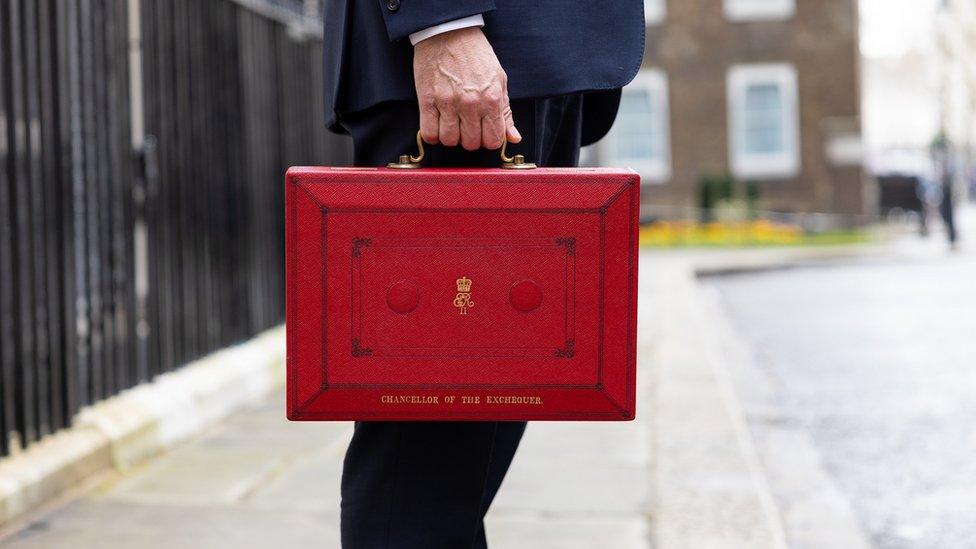Stormont: Ministers allocate public sector pay deal cash
- Published
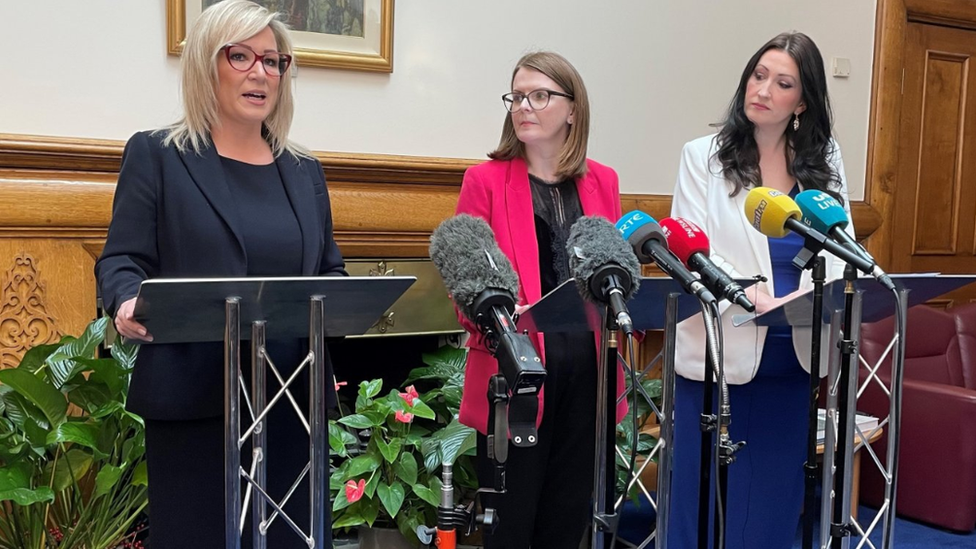
Michelle O'Neill, Caoimhe Archibald and Emma Little-Pengelly were speaking at a press conference at Stormont Castle
Stormont's Executive has agreed to allocate £688m to allow public sector pay deals to be progressed.
Trade unions involving transport, teaching, health and civil service staff had been on strike in recent months over the dispute.
Almost £600m to resolve that was offered by the government in its £3.3bn package for devolution being restored.
On Thursday, Finance Minister Caoimhe Archibald said she hoped pay money would be released as soon as possible.
She said it would now be up to unions and employers to finalise negotiations.
However, the money will only cover one year and pressed on whether the Executive could ensure recurring pay deals, the minister said work would be ongoing in the weeks ahead.
'Hard calls'
The Executive held its first substantive meeting on Thursday since power-sharing was restored at the beginning of the month.
Ministers also discussed plans about Stormont's finances for 2024-25 and First Minister Michelle O'Neill said parties were going to "continue the fight" with Treasury for additional tax and spending powers.
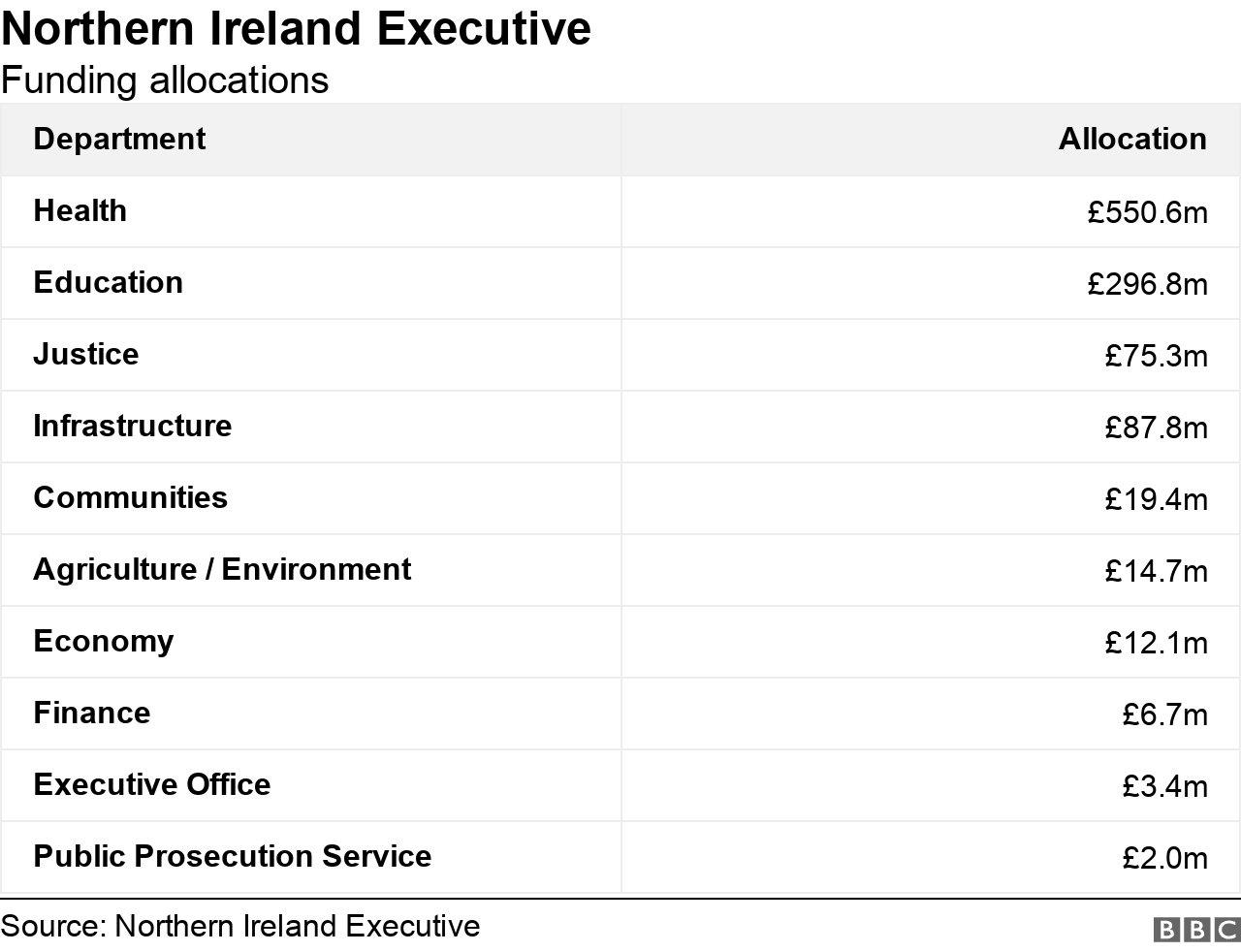
"We frequently hear we aren't preparing to make the hard calls, but for the public at large what we're trying to do is get the fundamentals right, this is not an unreasonable ask."
Deputy First Minister Emma Little-Pengelly said the government was being inflexible about its timetable of asking the Executive to have a sustainability plan and other measures agreed by May.
The meeting comes as the Northern Ireland Fiscal Council (NIFC) warned Stormont faced another financial "cliff-edge" in 2026.
The independent budget watchdog said future cuts could be needed to run a balanced budget after analysing the £3.3bn deal.
Ms O'Neill said ministers were "united" in terms of the challenges "but also the need to ensure we have a proper funded public service model here".
Gerry Murphy of the Irish Congress of Trade Unions (ICTU) welcomed the announcement in relation to public sector pay.
"Whether this funding allocation will be sufficient to settle all industrial disputes will become clear as negotiations between individual unions and relevant departments commence," he added.
"We would strongly urge government departments to begin these negotiations immediately in order to avoid any further unnecessary disruption."
'A realistic timetable?'
In the report, external, the NIFC said once the short-term elements of the government's package are exhausted ministers may have to raise revenue or make cuts.
Its chair, Sir Robert Chote, said some of the help from the package "tails off really quite sharply" from about £750m per year over the next two years, to about £300m.
"It's not obvious why you would have that cliff-edge designed into a financial package but presumably the UK government thinks that should give enough time for the Executive to take decisive action on revenue raising, budget saving, on public service reform," he said.
"Some people will ask if that's a realistic timetable."
The report also suggests that the ambition to fund Northern Ireland public services at their level of need will not be achieved until the 2030s.
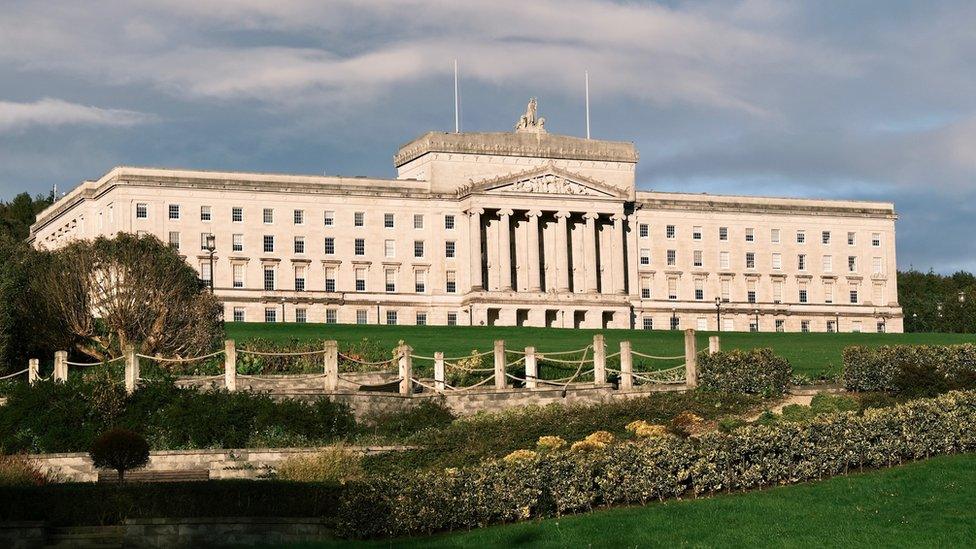
Stormont is responsible for setting the domestic regional rate and while Michelle O'Neill ruled out any dramatic rise, an inflation-only increase would still mean adding at least 4% to bills for the next financial year
The UK government has asked ministers to raise a minimum of £113m.
However, Northern Ireland parties want more funding from the UK Treasury and insist they did not commit to revenue raising as part of the deal agreed with the government.
It is understood that talks will be held between Finance Minister Caoimhe Archibald's department and Treasury officials in the coming days.
Michelle O'Neill has ruled out a 15% increase in the regional rate as a means of raising revenue, a figure which according to previous government estimations could raise £113m.
Rates are a property tax which help fund public services in Northern Ireland.
Stormont is responsible for setting the domestic regional rate and while Ms O'Neill ruled out any dramatic rise, an inflation-only increase would still mean adding at least 4% to bills for the next financial year.
The Wales model
The financial package included one-off funding of up to £584m to meet public sector pay pressures and a two year 'stabilisation' fund of more than £1bn.
There is also a move towards a 'needs-based' funding of public services, based on the model in Wales, which recognises that it costs more to deliver public services in Wales and Northern Ireland of an equivalent standard to those provided in England.
In Wales £115 is allocated for every £100 per head spent on public services in England.

It's estimated that the relative spending need for public services in NI is £124
The relative spending need for NI is estimated to be £124 but the NIFC warns that under the current deal that level of need would not be met until around 2035.
NI is currently estimated to be funded at a level of around £120.
The NIFC said whilst the uplift will help move public service funding onto a more sustainable long-term footing it does not address the short-term budget crisis.
Stormont ministers have been making the case that the needs-based part of the deal needs to be revisited to get to the £124 level much sooner.
The Social Democratic and Labour Party's Matthew O'Toole, who is leader of the opposition, said from initial discussions with the UK government in December there was a "fairly clear expectation" that revenue raising was an expectation.
"I do think it's a bit disingenuous now to make out that was sort of not there or in the ether," he said.
Related topics
- Published14 February 2024
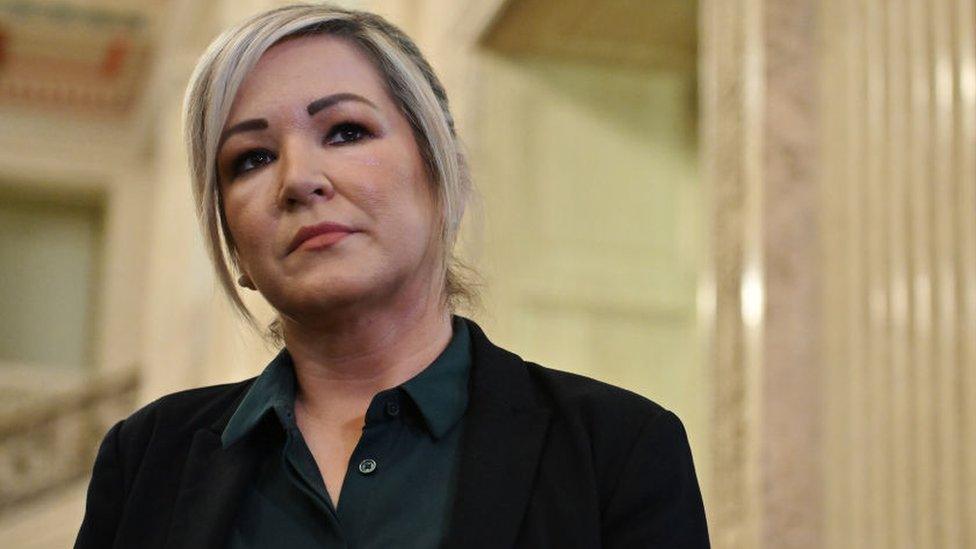
- Published12 February 2024

- Published11 February 2024
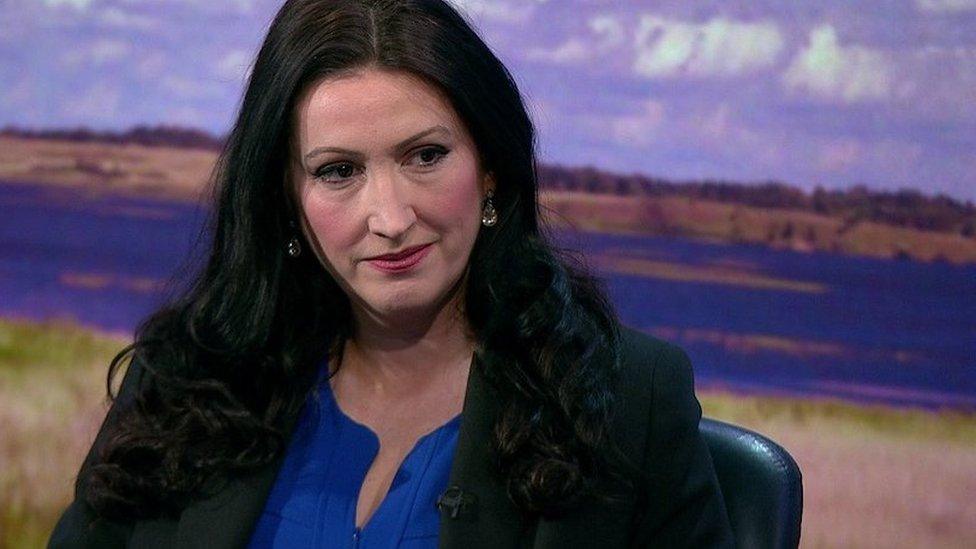
- Published15 January 2024
